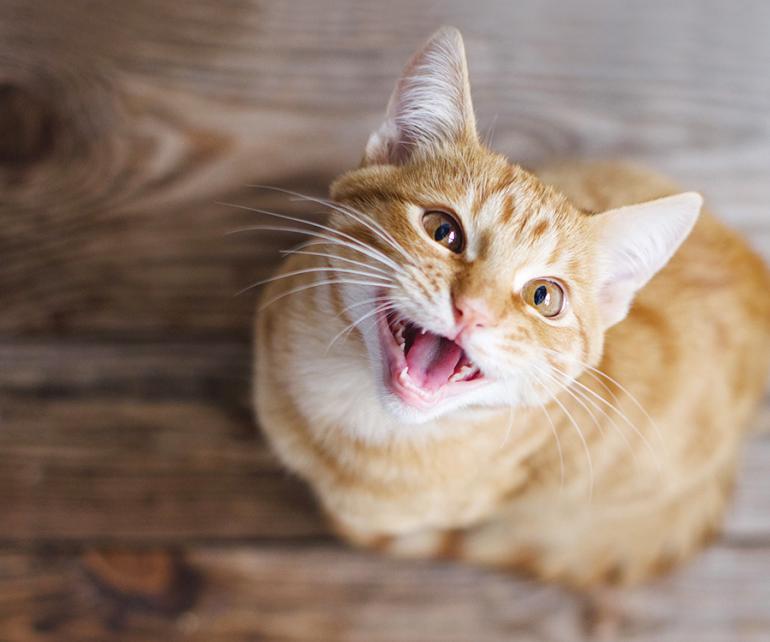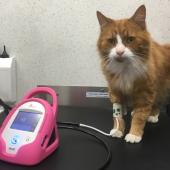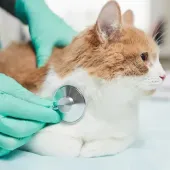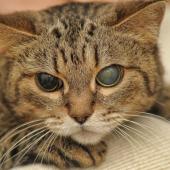18 Facts & Myths about heart disease in cats

Heart disease in cats is a topic often surrounded by myths and misconceptions. It's essential for cat owners to have accurate information to ensure the well-being of their feline friends. Let's debunk some common myths and highlight the facts about heart disease in cats.
- Myth: Cats can’t get heart disease. Fact: Cats can and do suffer from various heart diseases, including hypertrophic cardiomyopathy (HCM), which is the most common cardiac condition in cats.
- Myth: Heart disease only affects old cats. Fact: While heart disease is more common in senior cats, it can affect cats of all ages, including young kittens.
- Myth: Cats with heart disease always show visible symptoms. Fact: Cats are masters at hiding illnesses, and symptoms of heart disease might not be apparent until the condition is advanced. Regular veterinary check-ups are crucial for early detection.
- Myth: Heart murmurs always indicate heart disease. Fact: While heart murmurs can be a sign of heart disease, they are not always indicative of a serious condition. Some murmurs are benign and do not affect a cat's overall health.
- Myth: Cats with heart disease should not exercise. Fact: Regular, moderate exercise is beneficial for cats with heart disease, as it helps maintain a healthy weight and promotes overall cardiovascular health. However, intense physical activity should be avoided, especially if the cat is showing symptoms.
- Myth: Cats with heart disease should be kept indoors to protect them. Fact: While it's essential to provide a safe environment, keeping a cat indoors does not prevent heart disease. Regular veterinary care and a healthy lifestyle are more effective in promoting heart health.
- Myth: Heart disease in cats is always fatal. Fact: While heart disease can be serious, many cases can be managed with medications and lifestyle changes, allowing affected cats to lead relatively normal lives.
- Myth: Cats can outgrow heart disease. Fact: Heart disease is a chronic condition and does not typically resolve on its own. It requires appropriate veterinary care for proper management.
- Myth: There's nothing I can do to prevent heart disease in my cat. Fact: While some factors, such as genetics, cannot be controlled, maintaining a healthy lifestyle, providing a balanced diet, regular exercise, and timely veterinary check-ups can significantly reduce the risk and promote heart health in cats.
- Myth: Cats can't have heart attacks. Fact: Cats can have heart attacks, although they are relatively rare. Heart attacks in cats are usually caused by a blood clot blocking a major blood vessel, leading to damage in the heart muscle.
- Myth: Only overweight cats develop heart disease. Fact: While obesity can contribute to heart disease, cats of all weights can be affected. Genetic factors, underlying health conditions, and diet play significant roles in the development of heart disease.
- Myth: Cats with heart disease always cough. Fact: While coughing can be a symptom of heart disease in cats, it's not always present. Cats may exhibit other signs such as difficulty breathing, rapid breathing, or lethargy.
- Myth: Cats with heart disease should be given a low-sodium diet. Fact: Not all cats with heart disease require a low-sodium diet. The appropriate diet depends on the specific heart condition and the cat's overall health. It's essential to consult a veterinarian for dietary recommendations.
- Myth: Heart disease in cats is contagious. Fact: Heart disease is not contagious; it cannot be transmitted from one cat to another through close contact.
- Myth: Cats can't live long, fulfilling lives with heart disease. Fact: With proper management, medication, and lifestyle adjustments, many cats with heart disease can live comfortable and happy lives. Regular veterinary care and adherence to the prescribed treatment plan are crucial.
- Myth: Indoor cats are not at risk of heart disease. Fact: While outdoor cats might be exposed to more environmental risks, indoor cats are not immune to heart disease. Genetics, diet, and other factors can contribute to heart conditions in indoor cats.
- Myth: Heart disease in cats is always hereditary. Fact: While some heart conditions have a genetic component, other factors such as age, diet, and overall health can contribute to the development of heart disease.
- Myth: Heartworm disease only affects dogs, not cats. Fact: While heartworm disease is more common in dogs, it can also affect cats. Heartworms in cats can cause heart disease and respiratory problems.
Understanding these facts and dispelling common myths is essential for providing the best possible care for our feline companions. Responsible pet ownership, regular veterinary check-ups, and a healthy lifestyle can significantly impact a cat's heart health and overall well-being.





